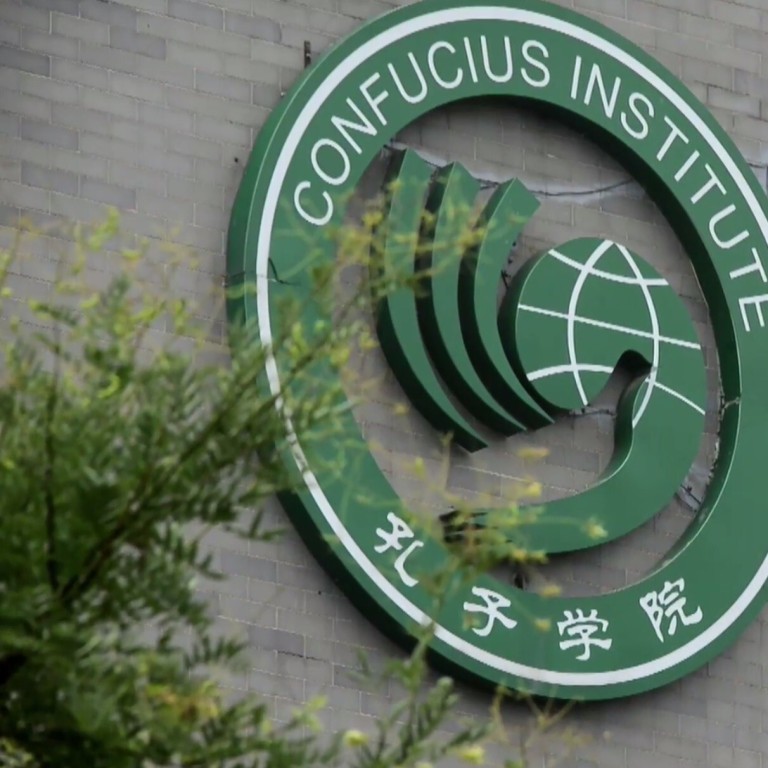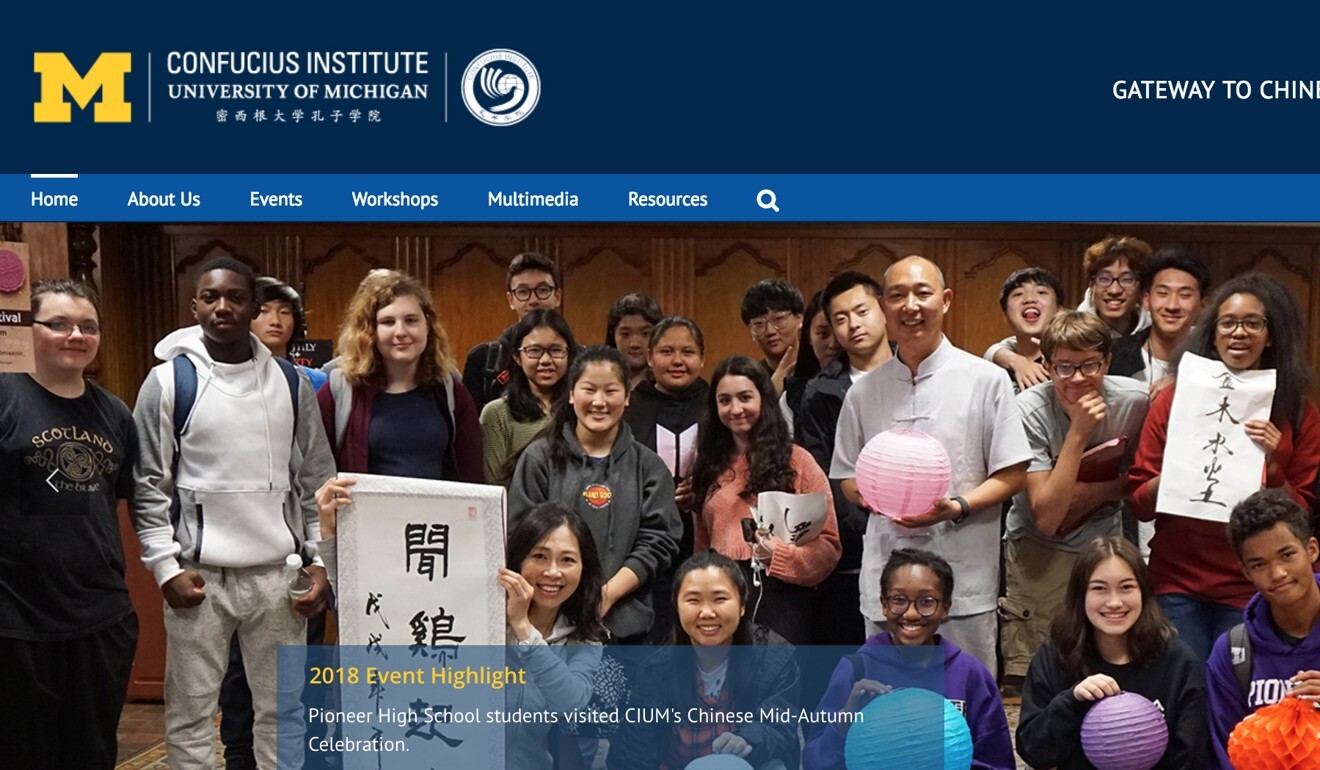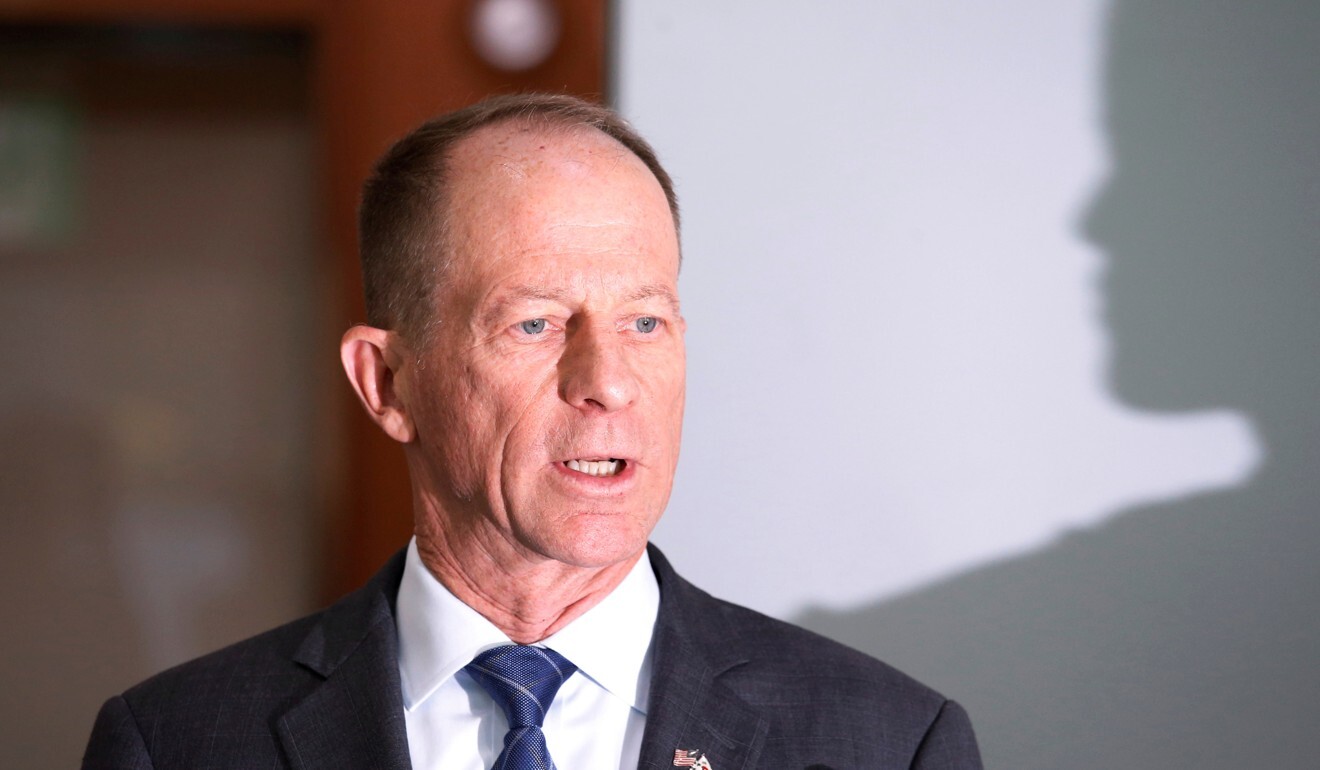
US government orders Confucius Institutes to register as foreign mission
- China’s government-funded Mandarin language and culture programme in the US must register staff rosters and property holdings
- The move follows similar orders for Chinese state-run media outlets operating in America
The US State Department has designated a Chinese government-funded Mandarin-language programme as a foreign mission, expanding the scope of Chinese organisations operating in America that Washington regards as propaganda arms of Beijing.
Confucius Institutes in the US (CIUS) – an organisation managed by China’s Ministry of Education, and which finances its programmes on American campuses – will need to register its personnel roster and property holdings with the State Department, a move authorised by the Foreign Missions Act of 1982 (FMA), David Stilwell, the assistant Secretary of State for East Asian and Pacific affairs, said on Thursday.
“We asked them to tell us what they're doing here in the US, we're not closing it. We’re simply designating them as what they are, as foreign missions,” Stilwell said.
Stilwell likened the move to the department’s new restrictions on journalists working at US bureaus for Chinese state media outlets. “This process that we've done so far with media and others has significantly improved visibility into what the [People’s Republic of China’s] state media is doing,” he said.

04:12
US education says no to Chinese resources
He added that “these so-called journalists do in fact work for the Beijing ministry of propaganda”, and that “In the same way, these activities of Confucius Institutes … who work for the Communist Party cannot masquerade as benign academic institutions.”
The order only applies to the Washington-based umbrella organisation, Confucius Institutes in the US. CIUS manages and funds programmes on US campuses, which are not subject to the order.
CIUS operates under the auspices of the Chinese Ministry of Education’s Chinese Language Council International, also known as Hanban.
Asked about Thursday's order, CIUS Executive Director Gao Qing, said he was “more than happy to work with the State Department and their request for more information surrounding our organization the same way we were during the [US Government Accountability Office’s] investigation last year.
US designates 4 more Chinese media organisations as ‘state propaganda outlets’
That report, which the GAO published in February 2019 after a review of 90 agreements between CIUS host organisations and officials involved in the programmes, failed to turn up any evidence that instructors were actively pushing an agenda set by Beijing, and suggested that many of the accusations about their activities were unfounded.
“Much of the information requested is either already publicly available or has been offered to the State Department multiple times in the past in a good faith effort to be transparent,” Gao said. “We have also made multiple attempts to open our organisation to the press to show that we, as a predominantly American staff, are committed to transparency.”
About 75 Confucius Institutes are active on university campuses and elsewhere in the US. These programmes are not subject to the requirement to register, nor are students taking the institutes’ Mandarin-language classes.
The US also has about 500 “Confucius Classrooms”, which are conducted on levels from kindergarten through high school. These programmes are managed by Hanban through US universities that host Confucius Institutes.

Campuses hosting Confucius Institutes had been dropping the programmes well before Thursday’s announcement, owing to scrutiny that had been intensifying for years.
At least 25 programmes have closed since the National Association of Scholars (NAS) published a 2017 report largely critical of the amount of control the Chinese government has over the selection of instructors and teaching materials used in CI classrooms.
Last year, for example, the University of Minnesota, San Francisco State University, the University of Oregon and Western Kentucky University all shuttered their CIUS programmes, after the passage of a clause in the 2019 US defence budget that no institutions receiving funding from the Pentagon can host a Confucius Institute.
The NAS report, “Outsourced to China: Confucius Institutes and Soft Power in American Higher Education”, cited many examples of Hanban’s control over teachers dispatched to host universities and agreements between Hanban and these schools to keep their contracts private.
US squeeze on Chinese digital infrastructure could upend global internet, analysts say
Confucius Institute programmes “avoid Chinese political history and human rights abuses, portray Taiwan and Tibet as undisputed territories of China, and educate a generation of American students to know nothing more of China than the regime's official history”, according to the report.
The NAS report added that “there is no positive proof that the institutes are also centres for Chinese espionage against the United States, but virtually every independent observer who has looked into them believes this to be the case”.
While the order doesn't apply to the individual university programs, Stilwell asked that universities "take a hard look at what those kids are doing on their campuses, and then decide for themselves if this is something that supports and advances academic freedom”.
Some of America’s largest and most prestigious academic institutions – including Stanford University; University of California, Los Angeles; University of Michigan and Columbia University – continue to offer Confucius Institute programmes, according to the CIUS website. None of these schools immediately responded to requests for comment.

The State Department’s action against Confucius Institute comes amid a series of other initiatives to counter perceived Chinese influence operations and national security threats, including its “Clean Network” programme and the Justice Department’s “China Initiative”.
Clean Network involves coaxing other countries to ban Chinese vendors from their 5G networks, and urges US app stores to remove “untrusted” Chinese-owned apps – including the video-sharing TikTok app and the messaging app WeChat.
The China Initiative involves a strengthening of resources to investigate unlawful and covert efforts by Chinese entities to acquire US technology and data.
However, the registration orders for Confucius Institutes also concerns reciprocal access, another contentious issue that drives US actions against Beijing.
American universities cutting ties to Huawei and Confucius Institute
“This whole process … reflects a larger effort by the US government and the Trump administration to get at through reciprocity and transparency,” Stilwell said.
He cited “American corners” offered at US universities with campuses in China as an example of failed attempts at reciprocity because of obstacles by Chinese authorities.
“The trouble is … they make access impossible for Chinese students to go talk to Americans … and so again this supposedly reciprocal relationship is wildly out of balance,” Stilwell said.
“Our goal is to get the other side to understand the importance of transparency and openness and sharing, but until that happens we're going to take steps to defend ourselves.”

